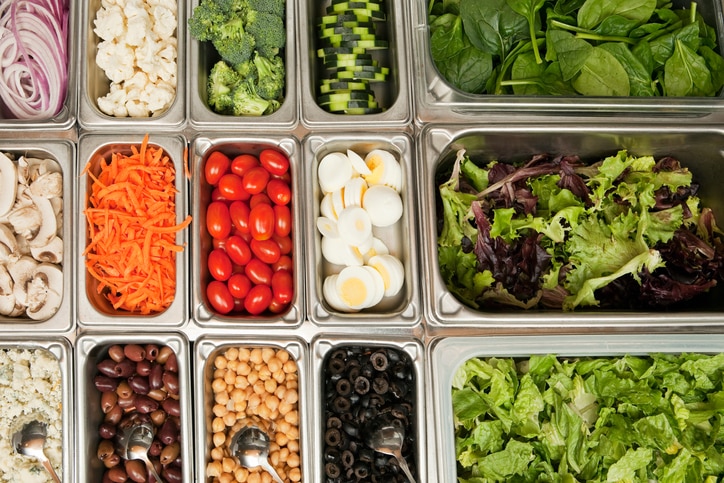The Centers for Disease Control and Prevention estimate that 48 million people get sick from foodborne illnesses every year. That’s 1 for every 6 people in the United States. Another 128,000 are hospitalized and 3,000 die annually from foodborne illnesses.
However, of the 48 million people who get sick, the CDC says the cause of the majority of the illnesses is “unspecified agents.” A whopping 39.9 million are “due to agents not yet described, unrecognized foodborne agents, and noninfectious agents.”
With foodborne illnesses in the news constantly from the Chipotle Restaurant chain to the local farmers, it’s worth asking about food safety. It’s a reasonable assumption that the food that comes from channels such as chain restaurants and grocery stores is safe to eat.
The challenge becomes that many people either purposefully or (in the process of cooking) accidentally remove dangerous bacteria in their food. “Much of the food safety burden falls on the consumer when it comes to meat, poultry, and eggs. Since those are all things we cook, we have it in our power to eliminate dangerous bacteria like Salmonella, E. coli, Staphylococcus, and Clostridium,” as reported in Popular Science. “By cooking to a hot enough temperature, you can nearly eliminate your risk—even though a significant fraction of poultry is contaminated.”
However, when it comes to salad, it’s not so easy. “Most of the produce you buy at the supermarket won’t make you sick, but the stuff that is contaminated probably won’t get cooked. Lots of salad fixings have bacteria and viruses on them, and rinsing with water won’t remove the little buggers. Cooking would kill them, but when was the last time you sauteed a papaya?” asked Popular Science.
Causes of Food Poisoning
In many cases, food poisoning is caused by bacteria, viruses, and parasites that are on the food before ingesting it. Failure to properly clean or cook the food can cause a whole host of foodborne illnesses.
Aside from undercooked meats or improperly prepared meats, vegetables can be breeding grounds for such microbes. For example, Botulism can be caused by improperly canned foods, home-canned vegetables, and baked potatoes in aluminum foil. Botulism can cause vomiting, diarrhea, blurred vision, difficulty swallowing, muscle weakness and even death. E.coli is often in the news when it comes to salad foods such as lettuce. It can be caused by undercooked beef, but can also come from raw fruits and vegetables. Severe and bloody diarrhea, abdominal pain and vomiting are usually a sign of E. coli poisoning.
Salmonella causes similar gastrointestinal symptoms and can contaminate raw fruits and vegetables. Most symptoms pass on their own, but the CDC warns if anyone suffers severe symptoms they should see their doctor.
Avoiding Food Poisoning from Vegetables
“If you fail to cook your chicken to 165 degrees Fahrenheit and get sick, that’s arguably your own fault. But if you don’t heat up your lettuce—that’s on the farmers. Produce often acquires its bacterial sheen from the water it’s showered with, which can be contaminated with fecal matter from nearby animal farms. Industrial-strength chemicals kill a lot of potential pathogens (though sometimes not all) but you have no idea what type of disinfecting procedure your tomatoes went through,” according to Popular Science.
Besides keeping abreast of any announcement of possible contaminations or food recalls, there isn’t much that can be done to prevent foodborne illnesses, besides cooking the vegetables – which isn’t always possible, desired, or particularly healthy.
“Unfortunately, there’s not a helpful set of tips that can help you eliminate your produce-associated risk,” said Popular Science. “You should always store cut up fruits and veggies in the refrigerator to minimize any bacterial growth, and for the love of all that is holy do not chop them just after you cubed some chicken. Beyond that, just rest assured that the benefit of a diet full of fresh produce far outweighs the risks of a foodborne illness.”
For more information about Food Safety and possible recalls you can contact the Food and Drug Administration Food Information Line at 1-888-SAFEFOOD.
Kiley Law Group is here to support you. If you think you may have a personal injury case, contact our attorneys today.



